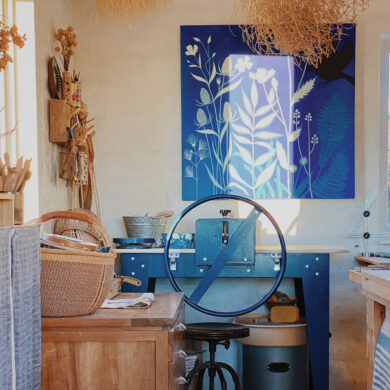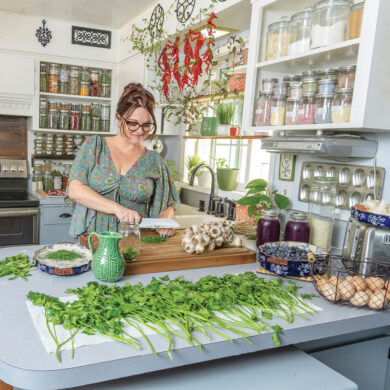
When I opened Bida Manda with my brother in 2012, I still had braces. We were young, hopeful siblings who longed to build our own home away from home and do so by honoring our family and culture. A love letter to our mom and dad and named for the ceremonial Sanskrit terms for Father and Mother, Bida Manda pays homage to the culture that raised us—which we still carry within us through all of our relationships—and the cooking that kept us grounded in our identities as Laotian immigrants.So we set out to open a Laotian restaurant in Raleigh, uncertain if anyone would be interested in giving us a chance.
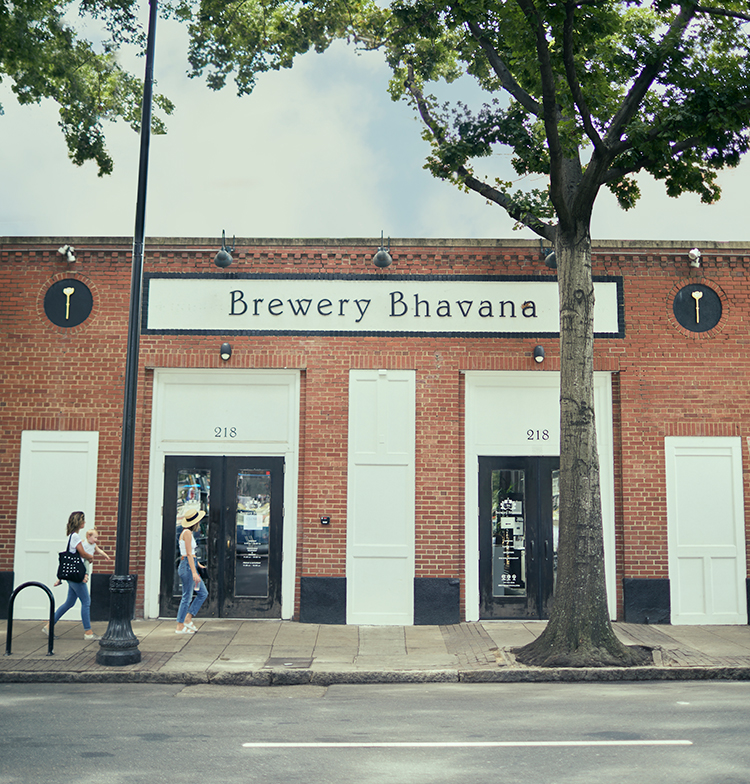
Raleigh’s downtown neighborhood was growing in the years leading up to us opening Bida Manda.The community embraced our story and our food more than we ever thought possible, and through service, we had a chance to fully live the values we learned as children.
I strive to be a generous host with an abundant offering, attentive to the smallest details, and also a part of the gathering.
Within five years, we embarked, in a second location, on our next adventure—Brewery Bhavana, a project born of relationships and a shared love for intentional, beautiful offerings. It is a taproom, featuring a set of core beers that our partner Patrick pored over for years, as well as provisional beers lending room for experimentation.
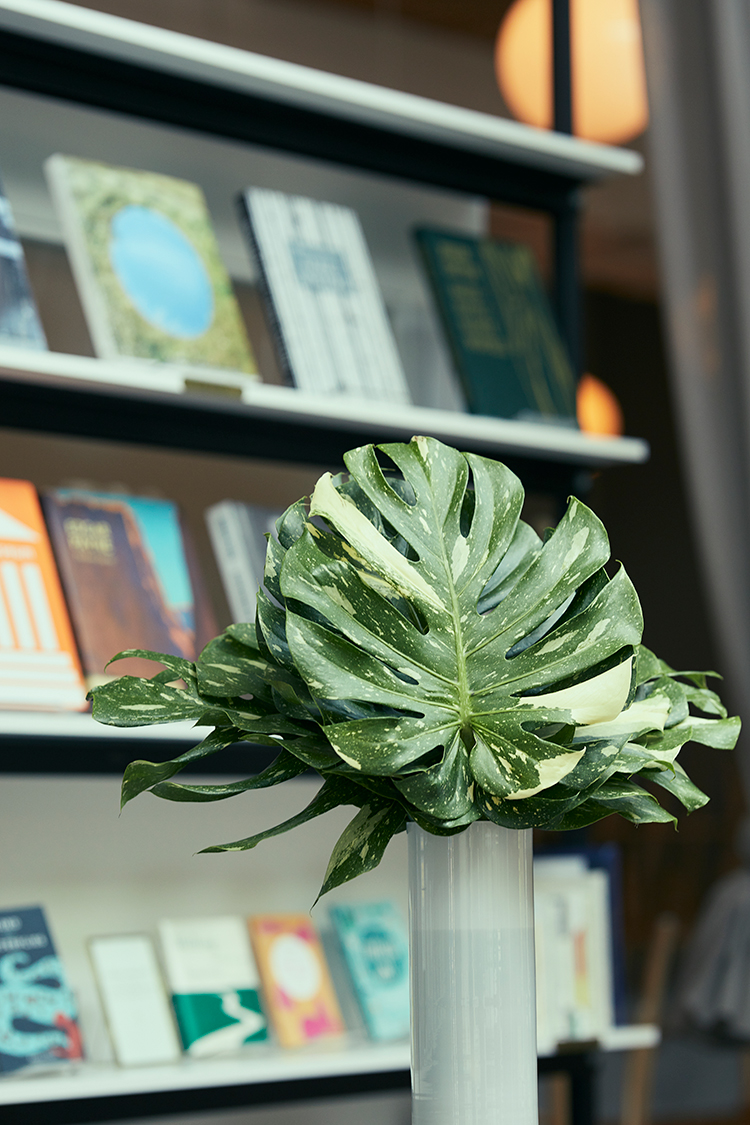
It is a dim sum Chinese restaurant, a familiar menu I recall enjoying as a little girl with my family in Laos and a cuisine that requires such methodical, careful precision of craft to execute. It is a flower shop, with a specific focus toward the creative power of flower arranging, a tradition that is thousands of years old. It is a bookstore, a place to roam and get lost in a story under the skylight, a space to honor the impact of words thoughtfully placed. A place to visit if you’re yearning for inspiration and creativity. A place where friends gather, where we can lose ourselves in the beauty of arranging fresh flowers in a flower shop, or in books that we do not have on our own bookshelves.
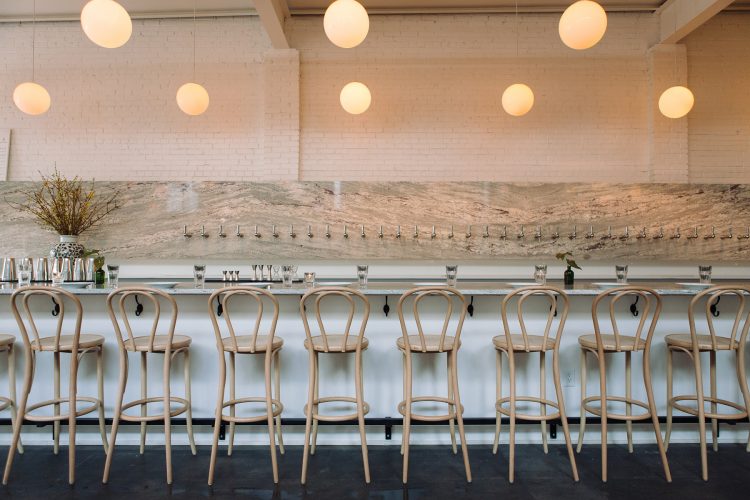
My day begins with an offering of fresh water that is kept near the front door of the restaurant, a tradition in my culture that signifies an extension of respect to the space itself, the energy inside it, whatever existed there before and the people who made it possible. It is a way to express gratitude for the present moment and how I arrived to it. As a ritual, it starts my day, setting an intention to show up with purpose and presence that extends into every step that follows.
The word Bhavana is a Sanskrit word that means “to cultivate.” That’s what I hope Bhavana is for my city: a place to cultivate the relationships, experiences, and lives that our guests want to have.
This mindset of intention and presence is woven through so much of the work we do at the restaurant. A table is not just a table at Brewery Bhavana. It, in itself, is an offering, and the way we set the table requires mindfulness. The flowers aligned down the dining room in the middle of the tables, the plates at each table centered with the middle of the chair and two inches in from the edge of the table, the silverware centered on flat napkins to the right of the plate with the bottom of the napkin also two inches in from the edge of the table, the empty glass nestled just above the plate and to the left of the silverware. Every item in its place.
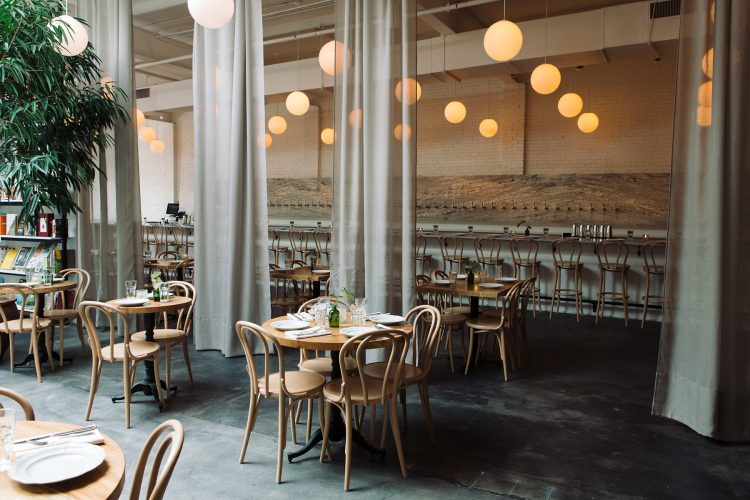
It is how we welcome guests as well: as ambassadors, using body language, careful choice of words, and tone of voice to introduce guests to the beginning of their experience at Brewery Bhavana. Each time I train a new person, I start with the basics: remember to slow down, to walk with grace over efficiency, to move slowly enough to make eye contact with other people and smile. Putting a restaurant together for service can be incredibly peaceful.
The minute service begins, there’s always a chance of chaos. Leading with mindfulness and intention as the foundation of hospitality allows us to dance with that chaotic energy of service with joy.


When I opened Bida Manda with my brother in 2012, I still had braces. We were young, hopeful siblings who longed to build our own home away from home and do so by honoring our family and culture. A love letter to our mom and dad and named for the ceremonial Sanskrit terms for Father and Mother, Bida Manda pays homage to the culture that raised us—which we still carry within us through all of our relationships—and the cooking that kept us grounded in our identities as Laotian immigrants.So we set out to open a Laotian restaurant in Raleigh, uncertain if anyone would be interested in giving us a chance.

Raleigh’s downtown neighborhood was growing in the years leading up to us opening Bida Manda.The community embraced our story and our food more than we ever thought possible, and through service, we had a chance to fully live the values we learned as children.
I strive to be a generous host with an abundant offering, attentive to the smallest details, and also a part of the gathering.
Within five years, we embarked, in a second location, on our next adventure—Brewery Bhavana, a project born of relationships and a shared love for intentional, beautiful offerings. It is a taproom, featuring a set of core beers that our partner Patrick pored over for years, as well as provisional beers lending room for experimentation.

It is a dim sum Chinese restaurant, a familiar menu I recall enjoying as a little girl with my family in Laos and a cuisine that requires such methodical, careful precision of craft to execute. It is a flower shop, with a specific focus toward the creative power of flower arranging, a tradition that is thousands of years old. It is a bookstore, a place to roam and get lost in a story under the skylight, a space to honor the impact of words thoughtfully placed. A place to visit if you’re yearning for inspiration and creativity. A place where friends gather, where we can lose ourselves in the beauty of arranging fresh flowers in a flower shop, or in books that we do not have on our own bookshelves.

My day begins with an offering of fresh water that is kept near the front door of the restaurant, a tradition in my culture that signifies an extension of respect to the space itself, the energy inside it, whatever existed there before and the people who made it possible. It is a way to express gratitude for the present moment and how I arrived to it. As a ritual, it starts my day, setting an intention to show up with purpose and presence that extends into every step that follows.
The word Bhavana is a Sanskrit word that means “to cultivate.” That’s what I hope Bhavana is for my city: a place to cultivate the relationships, experiences, and lives that our guests want to have.
This mindset of intention and presence is woven through so much of the work we do at the restaurant. A table is not just a table at Brewery Bhavana. It, in itself, is an offering, and the way we set the table requires mindfulness. The flowers aligned down the dining room in the middle of the tables, the plates at each table centered with the middle of the chair and two inches in from the edge of the table, the silverware centered on flat napkins to the right of the plate with the bottom of the napkin also two inches in from the edge of the table, the empty glass nestled just above the plate and to the left of the silverware. Every item in its place.

It is how we welcome guests as well: as ambassadors, using body language, careful choice of words, and tone of voice to introduce guests to the beginning of their experience at Brewery Bhavana. Each time I train a new person, I start with the basics: remember to slow down, to walk with grace over efficiency, to move slowly enough to make eye contact with other people and smile. Putting a restaurant together for service can be incredibly peaceful.
The minute service begins, there’s always a chance of chaos. Leading with mindfulness and intention as the foundation of hospitality allows us to dance with that chaotic energy of service with joy.








